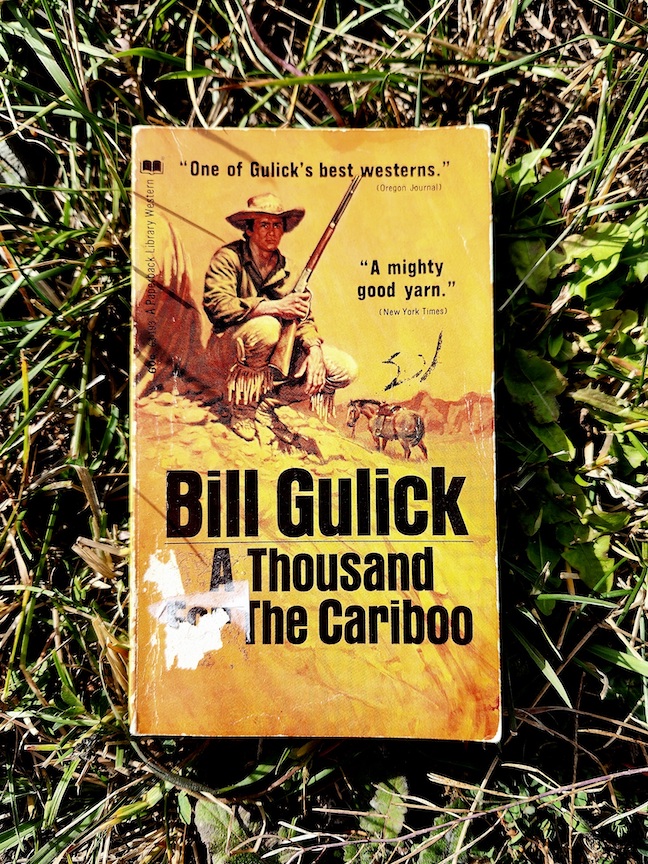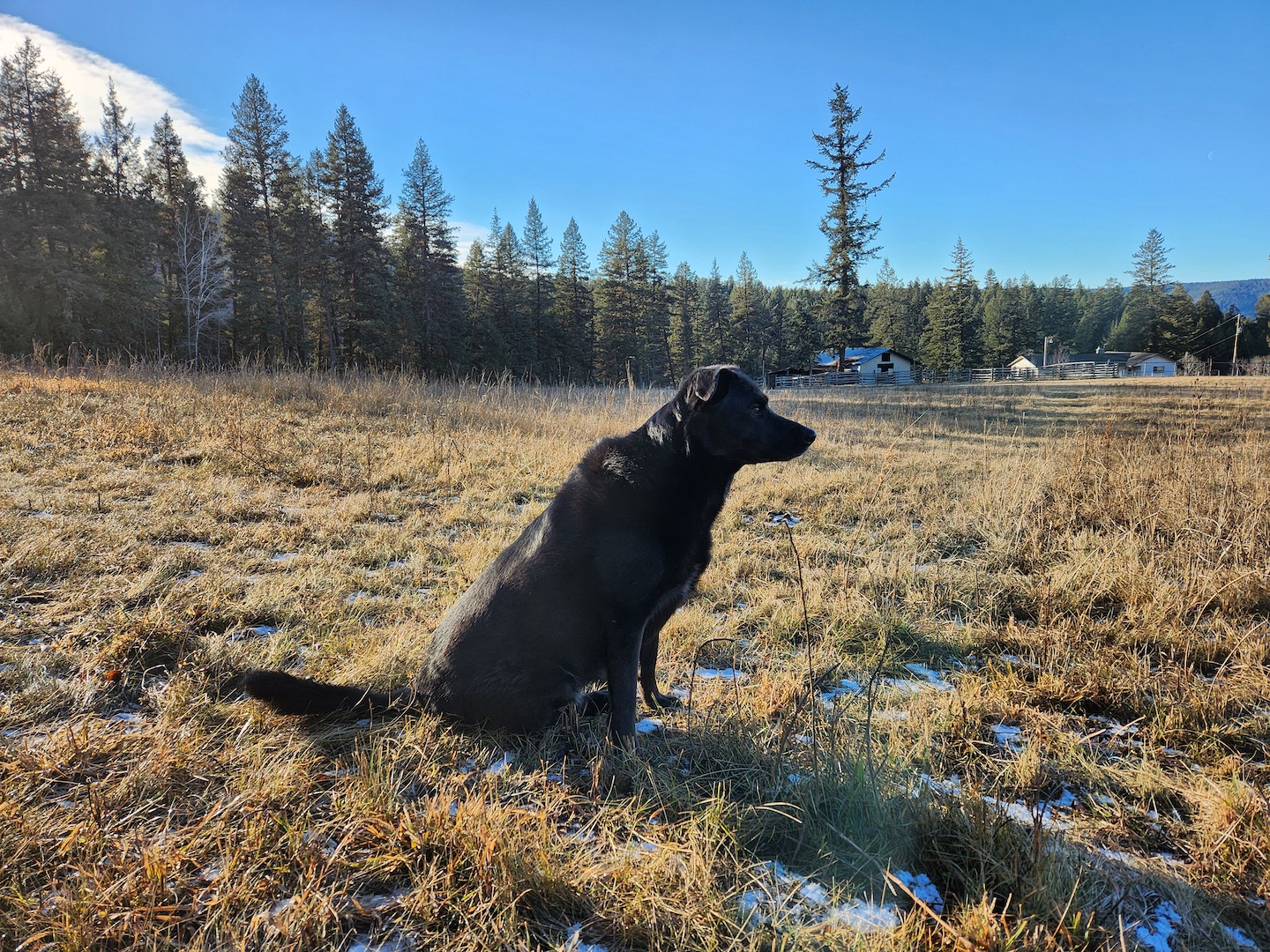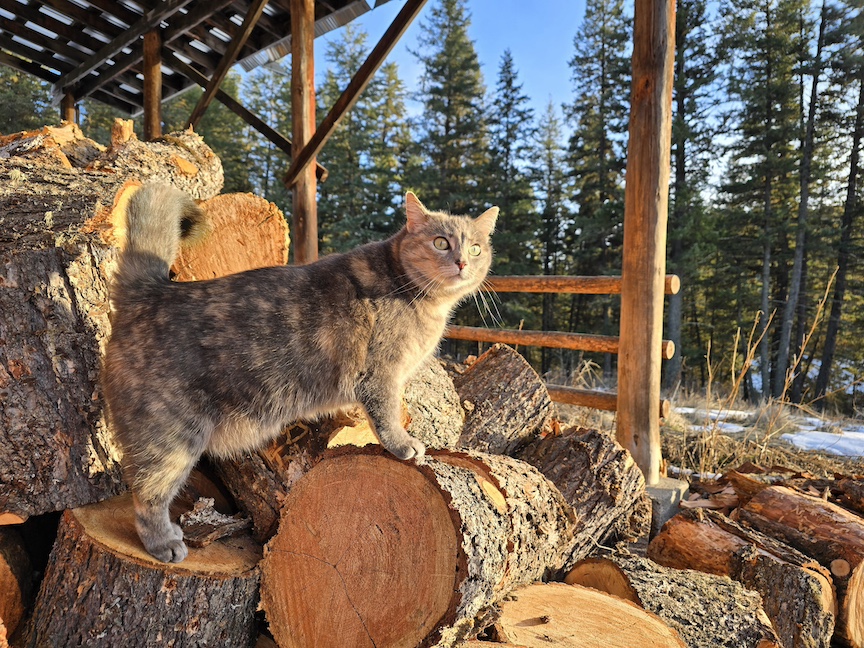Author: Bill Gulick
Published: 1954
Mood: If you just finished a massive book that took forever to read and want a Western that’s quick and easy on the brain aside from the casual racism.
I rescued A Thousand for the Cariboo from a thrift store because I almost never see Westerns that take place right here where I live.
I legit didn’t care if this book was good or bad. It was all about reading a book with ‘Cariboo’ in the title – and one that wasn’t 500+ pages, like most of the others in my to-read pile.
It’s not a brilliant story or my new favourite author, but I will say that it at least paid off on the novelty factor. If you live in the Pacific Northwest and want a speedy little read about pushing cattle through places you’ve probably been while trying not to get killed, you could do worse.

A Thousand for the Cariboo has a telling title. A series of unfortunate events forces Wynn to put his family’s spread on the table for a wealthy backer, against his ability to push 1,000 steers from Oregon to the Cariboo region of BC. The gold rush is on, and the miners are in desperate need of beef cattle.
If he makes it, they both profit. If he doesn’t, he loses the farm.
Wynn is forced to take along the backer’s best ranch hand, a guy named Andy who has a quick temper, a delicate ego, and nefarious ideas about commandeering the cattle. Wynn is also forced to take the backer’s lawyer, a greenhorn who’s overseen some shady dealings for the backer, and has nefarious ideas about the backer’s attractive niece. But – gasp! – so does Wynn.
The trip takes several months and Wynn spends the entire time dodging danger. Little does he know, the worst of it awaits at the end of the trail. Mwahahaha.
![]()
Let’s start with the pros.
A Thousand for the Cariboo is a fast read, with a lot of action and character drama that keeps you turning the pages. The writing quality is surprisingly good for a skinny old Western paperback. The descriptions of the land are quite richly detailed, and the dialogue feels more authentic than some other Westerns I’ve read.
Author Bill Gulick is a pretty good storyteller, which probably comes from being a historian. He actually only had 20 books published in his lifetime, but three of them were made into movies including Bend of the River, which is a fantastic Jimmy Stewart film. A Thousand for the Cariboo feels like it was crafted by someone of the L’Amour ilk – a wanderer who has experienced every twist and turn of the trails. L’Amour wasn’t exactly good at character development, either.
Speaking of which, now for the cons.
The ending is predictable, and the characters are pretty thin. When this was written, back in the ‘50s, everyone was so into Westerns that you could get away with churning out repetitive tales of strapping young heroes and glinty-eyed villains, and flustered women who dream of nothing more than changing strapping heroes into proper husbands.
But now, nearly 70 years later, those characters feel less charming and more lazy. It’s also painfully reliant on racial stereotypes for the supporting characters. The descriptions of Indigenous and Mexican characters are condescending at the best of times (for the Mexican cowhand), and outright insulting at the worst (every single Indigenous woman).
And everyone in this book is either slim and good-looking or comically misshapen. It reminds me of the supporting cast of old Disney animated movies from this same time period. You know, how the men are either super fit and attractive or they’re fat, ruddy-cheeked, and have bulbous noses, and the women are either perfect hourglass bombshells or crones.
The cringey way that Disney did the Indians in the 1953 animated Peter Pan is exactly what Gulick describes in this book, which is unsurprising since Peter Pan came out only the year before. I know that it was the common way of white people thinking at the time, but it’s disappointing for a historian to rely on stereotypes when he of all people should know better.
I still enjoyed several aspects of A Thousand for the Cariboo, but there’s a good chance that I’m being more lenient simply because it’s about the Cariboo.


